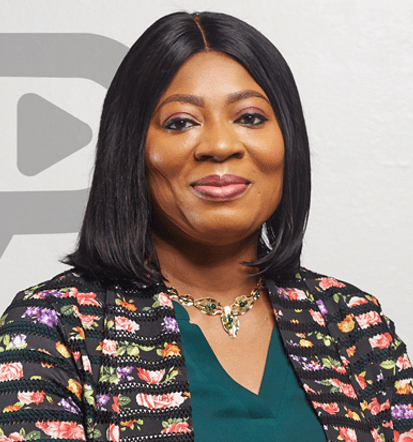By Adjei Dickens OFORI ASARE
Ghana’s media has a crucial role to play in dismantling the biases that keep women from achieving equality in politics. That was the central message from Dr. Lawrencia Agyepong, Director of the Center for International Relations at the University of Media Arts and Communication (UniMAC), during her address at a public forum on democracy and communication.
The event, held virtually on November 22, took a closer look at the intersection of elections, media, and civic responsibility ahead of Ghana’s 2024 general elections. Dr. Agyepong’s presentation zeroed in on how media representation of women often hinders their participation and leadership in politics.
A Lens of Bias.
“Research shows that women in politics are not just underrepresented but misrepresented,” Dr. Agyepong told the audience. She pointed to persistent stereotypes in media coverage, where female politicians are often depicted in nurturing, motherly roles while male politicians are framed as competent and policy-oriented.
Drawing on examples from Ghana’s elections, she pointed out, “In many instances, women politicians are framed as nurturing ‘mother figures,’ while their male counterparts are portrayed as competent and policy-driven leaders.”
Using specific case studies, she detailed how female candidates, such as those in the Ayawaso West Wuogon and Akwatia constituencies, were characterized by gendered stereotypes. For example, female candidates were cast as maternal or overly emotional, while male candidates were framed as assertive and competent.
The implications of these stereotypes, she explained, are far-reaching. “When assertive women are labeled aggressive or unfeminine, it sends a message that women don’t belong in leadership. This framing hurts not just the candidates but the democratic process as a whole.”
A Numbers Game
Dr. Agyepong also stressed on the blunt disparity in how men and women are covered in the media. “Men consistently receive more verbal coverage, while women are often relegated to pictorial representation,” she said. The imbalance, she argued, diminishes women’s visibility and their ability to influence voters.
A weighty part of the problem, Dr. Agyepong noted, lies in the composition of newsrooms. “Political reporting is still largely dominated by male journalists, which often results in male voices being amplified at the expense of female perspectives,” she said.
The Way Forward
Dr. Agyepong didn’t just highlight problems—she offered solutions. She called for media houses to adopt gender-sensitive reporting practices and to intentionally include female voices in political discussions. “We need to showcase what women bring to the table in terms of policies and expertise, not just focus on their gender roles,” she said.
She also urged newsrooms to address institutional biases by diversifying their teams and creating opportunities for female journalists to cover political stories.
“Training and awareness are critical. If we want to achieve true gender equality, we need to start with how stories are told,” she added.
Dr. Agyepong ended her presentation with a rallying cry for change. “Ultimately, the media can shape a Ghana where women’s leadership is not just recognized but celebrated. It’s time to dismantle the biases and build a democracy that includes everyone.”










